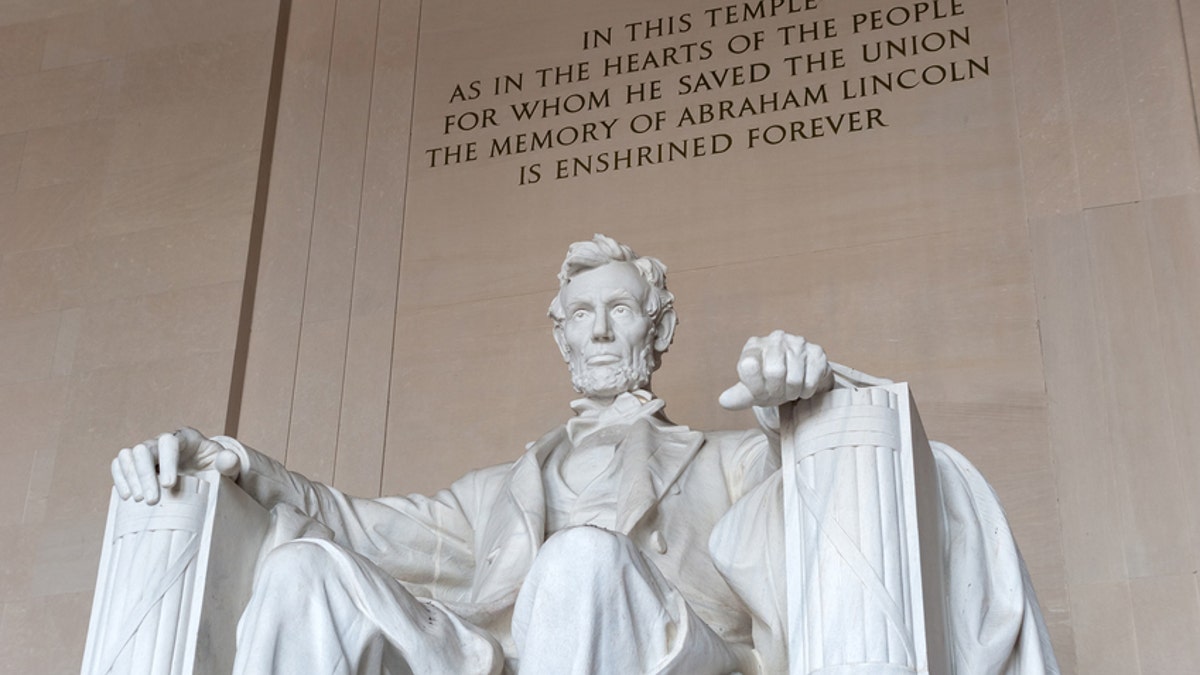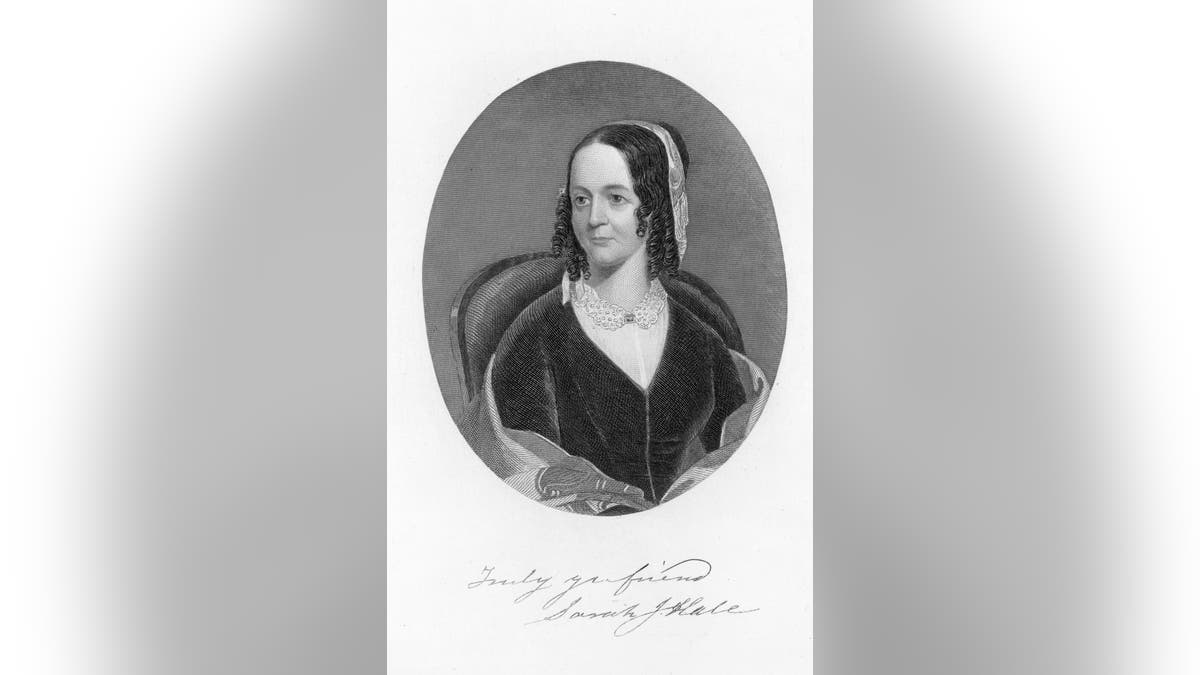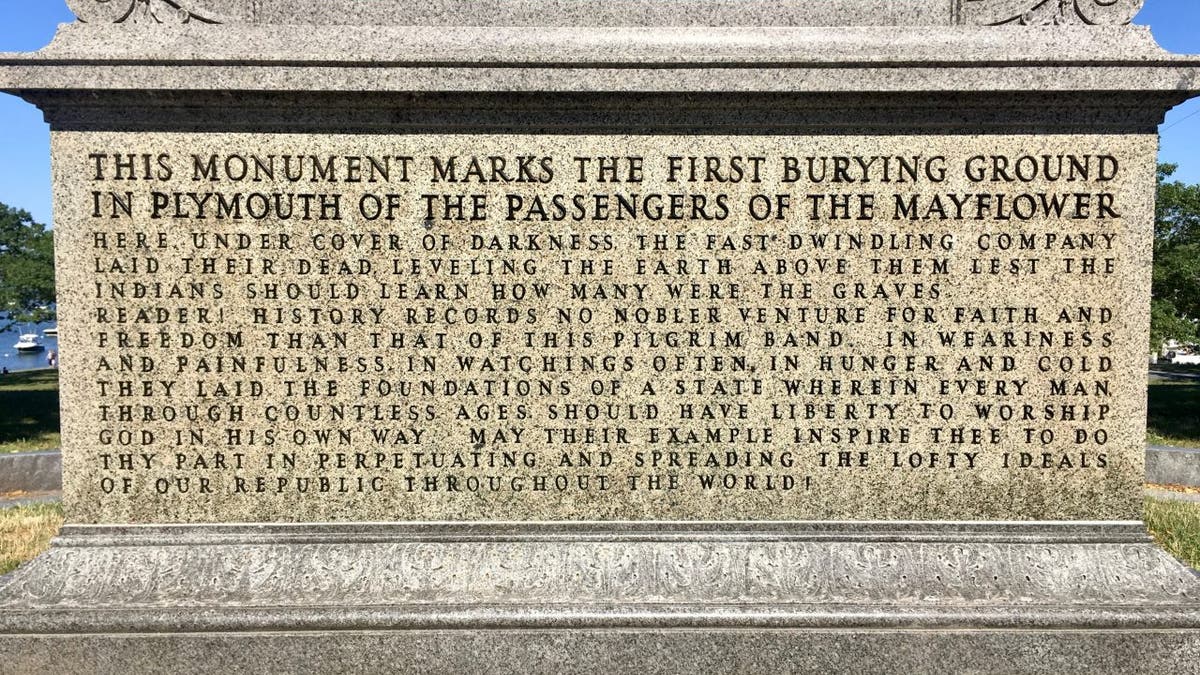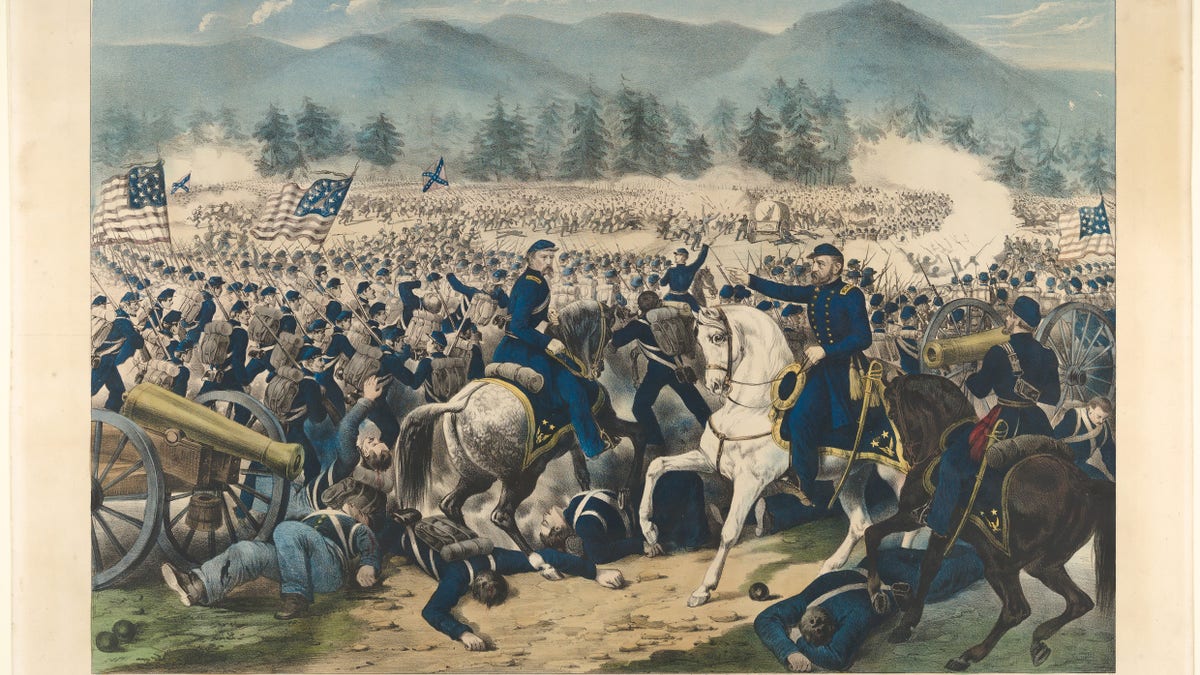Brian Kilmeade on how Abraham Lincoln and Frederick Douglass moved from disagreement to friendship
Kilmeade tells a story that changed the course of history in Fox Nation's 'The President and the Freedom Fighter.'
Abraham Lincoln, in a stirring call to spiritual unity amid the carnage of the Civil War, issued his emotionally powerful Thanksgiving proclamation on this day in history, Oct. 3, 1863.
The president invited Americans at home and abroad "to set apart and observe the last Thursday of November next, as a day of Thanksgiving and praise to our beneficent Father who dwelleth in the Heavens."
The tradition of Thanksgiving in America dated back to the first Pilgrim and Wampanoag feast of 1621. President George Washington proclaimed a day of Thanksgiving exactly 74 years before Lincoln's decree on Oct. 3, 1789.
Other presidents issued similar proclamations.
"But the October 1863 proclamation was the first time that a president had singled out a specific date — the last Thursday in November — for the occasion of a holiday specifically called Thanksgiving," Smithsonian Magazine noted.
Previous Thanksgiving celebrations were held at various dates in different states and communities in accordance with local tradition.

The Abraham Lincoln Memorial in Washington, D.C. Lincoln's words of gratitude stood in sharp contrast to the misery of surrounding circumstances. (iStock)
Lincoln was inspired to issue the proclamation by author Sarah Josepha Hale.
She is best known for championing the construction of Bunker Hill Monument in Boston to commemorate an early major battle of the American Revolution — and for writing the world-famous nursery rhyme, "Mary Had A Little Lamb."
"You may have observed that, for some years past, there has been an increasing interest felt in our land to have the Thanksgiving held on the same day, in all the States," Hale wrote in a Sept. 28th letter to Lincoln.
"It now needs National recognition and [authoritative] fixation, only, to become permanently, an American custom and institution."
WAS ABRAHAM LINCOLN'S ASSASSINATION HISTORY'S ‘MOST EGREGIOUS FAKE NEWS COVER-UP?’
Much like the Pilgrims nearly 250 years earlier, Lincoln's words of gratitude stood in sharp contrast to the misery of surrounding circumstances.
"Population has steadily increased, notwithstanding the waste that has been made in the camp, the siege and the battlefield." — Abraham Lincoln
The Pilgrims had lost half their members to hunger, disease and exposure their first winter in frosty Massachusetts.
The United States at the time of Lincoln's holiday decree was just three months removed from the shocking waste of the Battle of Gettysburg, in which 50,000 men from both sides were killed, wounded or went missing in just three days of fighting.

Portrait of Sarah Josepha Hale (1788-1879), nee Buell, American writer and editor, around 1830. Married David Hale 1813, edited Ladies Magazine 1828-37, Godey's Lady's Book 1837-77. Wrote poems for children containing "Mary Had a Little Lamb" and others. (Photo by Hulton Archive/Getty Images)
The Thanksgiving date, the fourth Thursday in November, was finally made law, and a federal holiday, under President Franklin D. Roosevelt on Dec. 26, 1941.
The statutory formality came amid another period of trauma in our national history, just 19 days after the attack on Pearl Harbor.
The Pilgrims and President Lincoln each emerged from the shock of their circumstances faithful in a brighter future built to the glory of God.
ON THIS DAY IN HISTORY, SEPT. 22, 1862, ABRAHAM LINCOLN PROCLAIMS SLAVES WILL SOON BE ‘FOREVER FREE’
Though Lincoln is widely considered the most gifted writer of all American presidents, Secretary of State William Seward is the one who actually wrote the words of the Thanksgiving proclamation, according to an April 1, 1864, letter from John Nicolay, one of President Lincoln's secretaries.

A monument overlooking the harbor in Plymouth, Mass., marks the site where the Pilgrims buried their dead the first winter of 1620-21, when nearly half of the 100 settlers died. "In hunger and cold they laid the foundations of a state wherein every man through countless ages should have liberty to worship God in his own way," reads the monument. (Kerry J. Byrne/Fox News Digital)
The beauty of the proclamation stands on its own: "In the midst of a civil war of unequaled magnitude and severity … needful diversions of wealth and of strength from the fields of peaceful industry to the national defense, have not arrested the plough, the shuttle or the ship."
"(We) fervently implore the interposition of the Almighty Hand to heal the wounds of the nation." — Abraham Lincoln
"The axe has enlarged the borders of our settlements, and the mines of iron and coal and precious metals have yielded even more abundantly than heretofore. Population has steadily increased, notwithstanding the waste that has been made in the camp, the siege and the battlefield."
CLICK HERE TO GET THE FOX NEWS APP
"And the country, rejoicing in the consciousness of augmented strength and vigor, expects a continuance of years with large increase of freedom."

The Battle of Gettysburg, Pa., July 3rd, 1863. Artist Currier and Ives. About 50,000 men were killed, wounded or went missing in the three-day battle. (Photo by Heritage Art/Heritage Images via Getty Images)
"No human counsel hath devised nor hath any mortal hand worked out these great things. They are the gracious gifts of the Most High God, who, while dealing with us in anger for our sins, hath nevertheless remembered mercy."
It continued, "It has seemed to me fit and proper that these gifts should be solemnly, reverently and gratefully acknowledged as with one heart and one voice by the whole American People."
For more Lifestyle articles, visit www.foxnews.com/lifestyle
Lincoln's Thanksgiving proclamation foreshadowed the dramatic call for healing that he issued — "malice toward none; charity toward all" — in his celebrated second inaugural address soon before his assassination in 1865.
CLICK HERE TO SIGN UP FOR OUR LIFESTYLE NEWSLETTER
The holiday decree concluded: "(We) fervently implore the interposition of the Almighty Hand to heal the wounds of the nation and to restore it as soon as may be consistent with Divine purposes to the full enjoyment of peace, harmony, tranquility and Union."










































